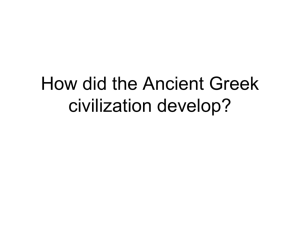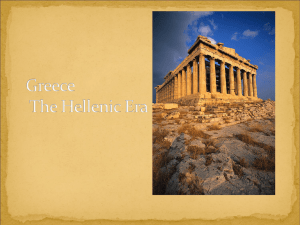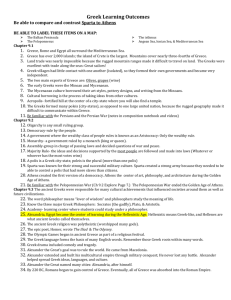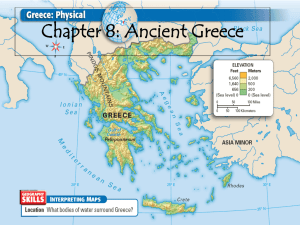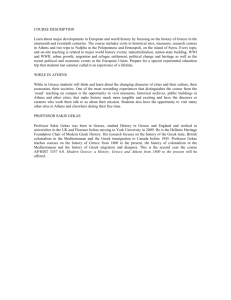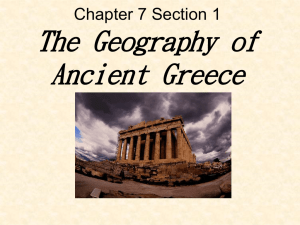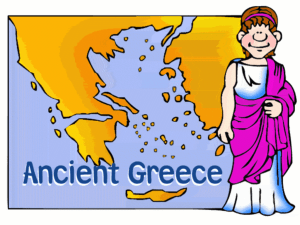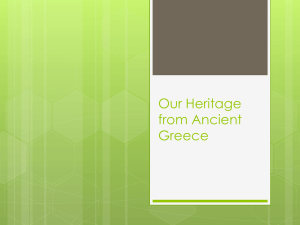Chapter 3 Summary The Civilization of the Greeks
advertisement
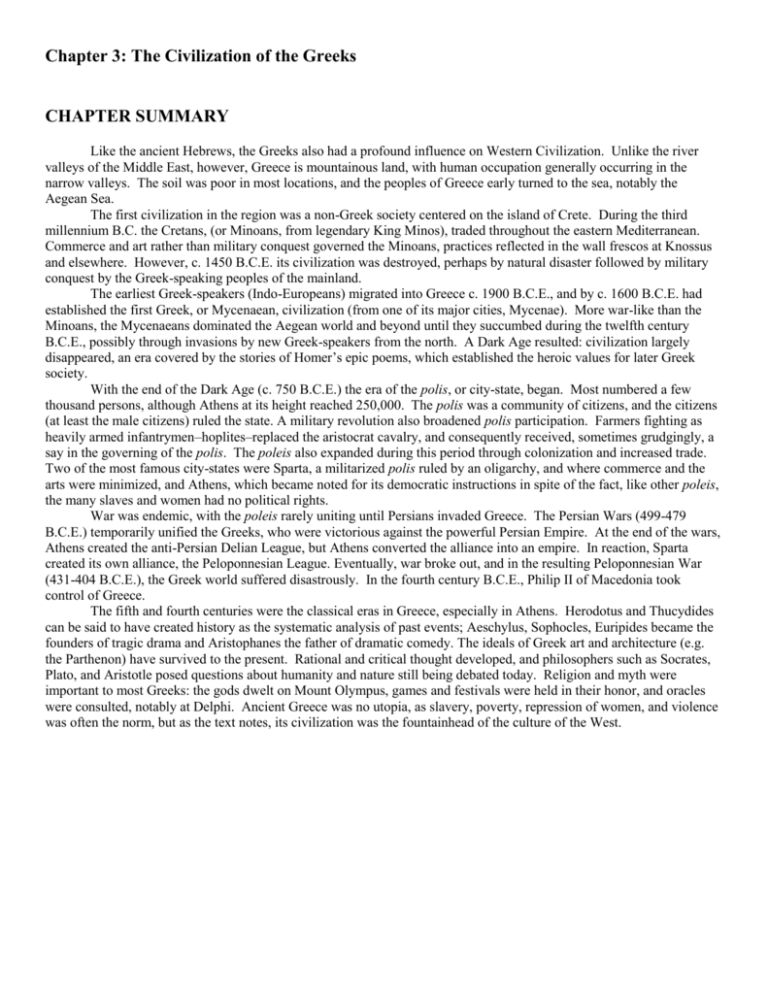
Chapter 3: The Civilization of the Greeks CHAPTER SUMMARY Like the ancient Hebrews, the Greeks also had a profound influence on Western Civilization. Unlike the river valleys of the Middle East, however, Greece is mountainous land, with human occupation generally occurring in the narrow valleys. The soil was poor in most locations, and the peoples of Greece early turned to the sea, notably the Aegean Sea. The first civilization in the region was a non-Greek society centered on the island of Crete. During the third millennium B.C. the Cretans, (or Minoans, from legendary King Minos), traded throughout the eastern Mediterranean. Commerce and art rather than military conquest governed the Minoans, practices reflected in the wall frescos at Knossus and elsewhere. However, c. 1450 B.C.E. its civilization was destroyed, perhaps by natural disaster followed by military conquest by the Greek-speaking peoples of the mainland. The earliest Greek-speakers (Indo-Europeans) migrated into Greece c. 1900 B.C.E., and by c. 1600 B.C.E. had established the first Greek, or Mycenaean, civilization (from one of its major cities, Mycenae). More war-like than the Minoans, the Mycenaeans dominated the Aegean world and beyond until they succumbed during the twelfth century B.C.E., possibly through invasions by new Greek-speakers from the north. A Dark Age resulted: civilization largely disappeared, an era covered by the stories of Homer’s epic poems, which established the heroic values for later Greek society. With the end of the Dark Age (c. 750 B.C.E.) the era of the polis, or city-state, began. Most numbered a few thousand persons, although Athens at its height reached 250,000. The polis was a community of citizens, and the citizens (at least the male citizens) ruled the state. A military revolution also broadened polis participation. Farmers fighting as heavily armed infantrymen–hoplites–replaced the aristocrat cavalry, and consequently received, sometimes grudgingly, a say in the governing of the polis. The poleis also expanded during this period through colonization and increased trade. Two of the most famous city-states were Sparta, a militarized polis ruled by an oligarchy, and where commerce and the arts were minimized, and Athens, which became noted for its democratic instructions in spite of the fact, like other poleis, the many slaves and women had no political rights. War was endemic, with the poleis rarely uniting until Persians invaded Greece. The Persian Wars (499-479 B.C.E.) temporarily unified the Greeks, who were victorious against the powerful Persian Empire. At the end of the wars, Athens created the anti-Persian Delian League, but Athens converted the alliance into an empire. In reaction, Sparta created its own alliance, the Peloponnesian League. Eventually, war broke out, and in the resulting Peloponnesian War (431-404 B.C.E.), the Greek world suffered disastrously. In the fourth century B.C.E., Philip II of Macedonia took control of Greece. The fifth and fourth centuries were the classical eras in Greece, especially in Athens. Herodotus and Thucydides can be said to have created history as the systematic analysis of past events; Aeschylus, Sophocles, Euripides became the founders of tragic drama and Aristophanes the father of dramatic comedy. The ideals of Greek art and architecture (e.g. the Parthenon) have survived to the present. Rational and critical thought developed, and philosophers such as Socrates, Plato, and Aristotle posed questions about humanity and nature still being debated today. Religion and myth were important to most Greeks: the gods dwelt on Mount Olympus, games and festivals were held in their honor, and oracles were consulted, notably at Delphi. Ancient Greece was no utopia, as slavery, poverty, repression of women, and violence was often the norm, but as the text notes, its civilization was the fountainhead of the culture of the West.
